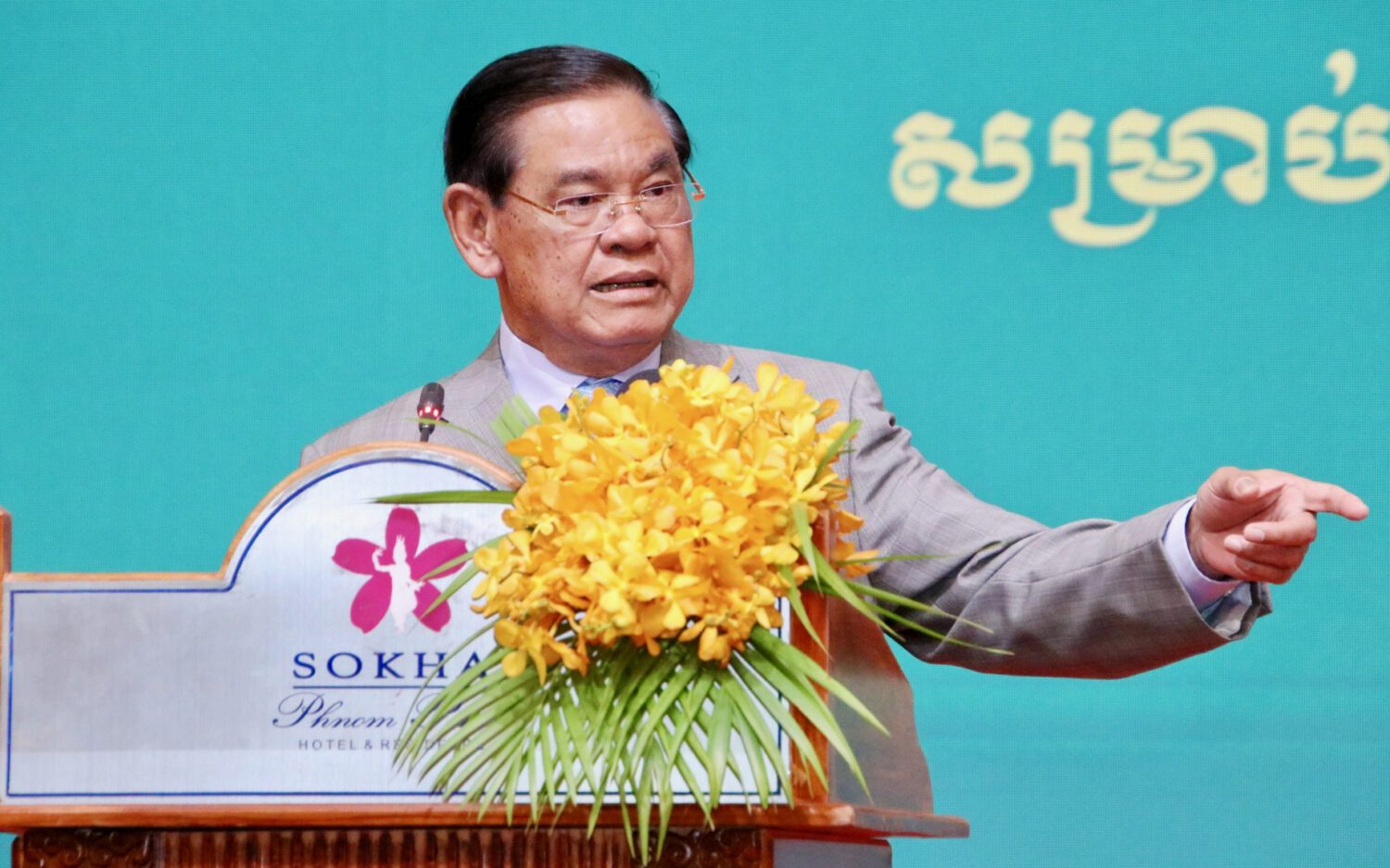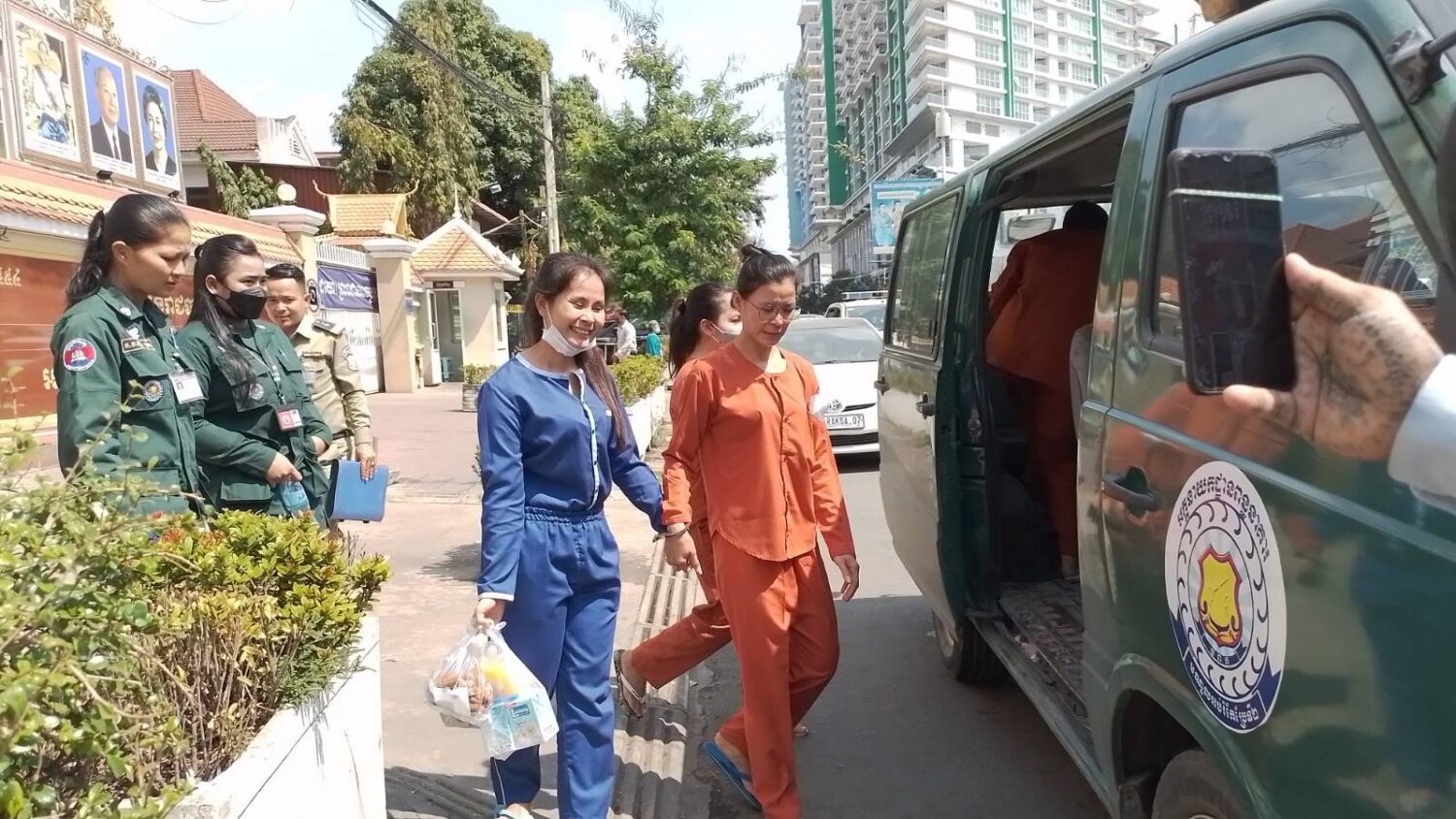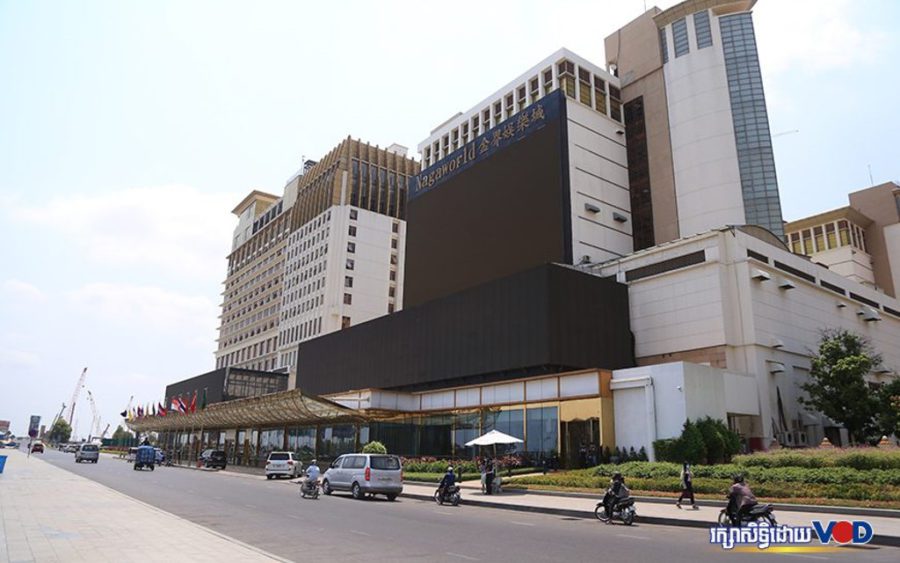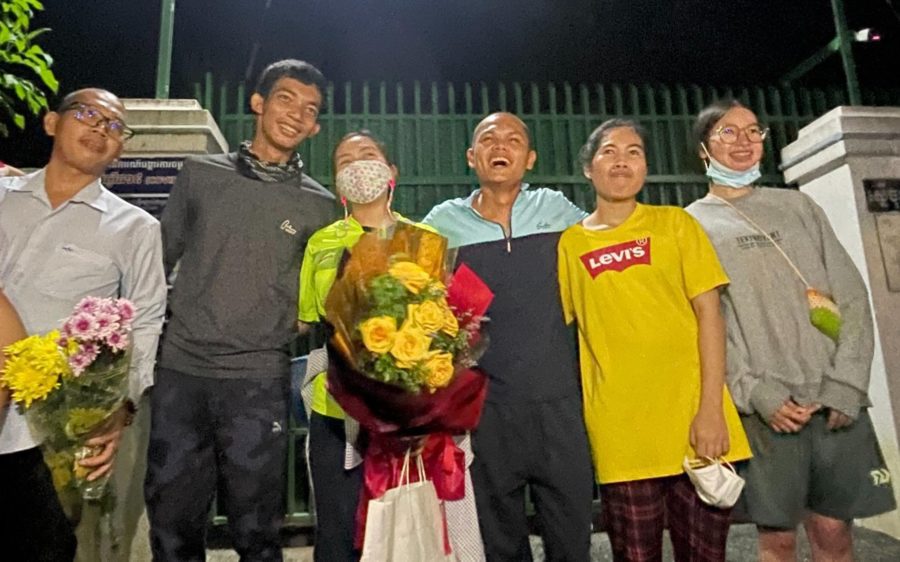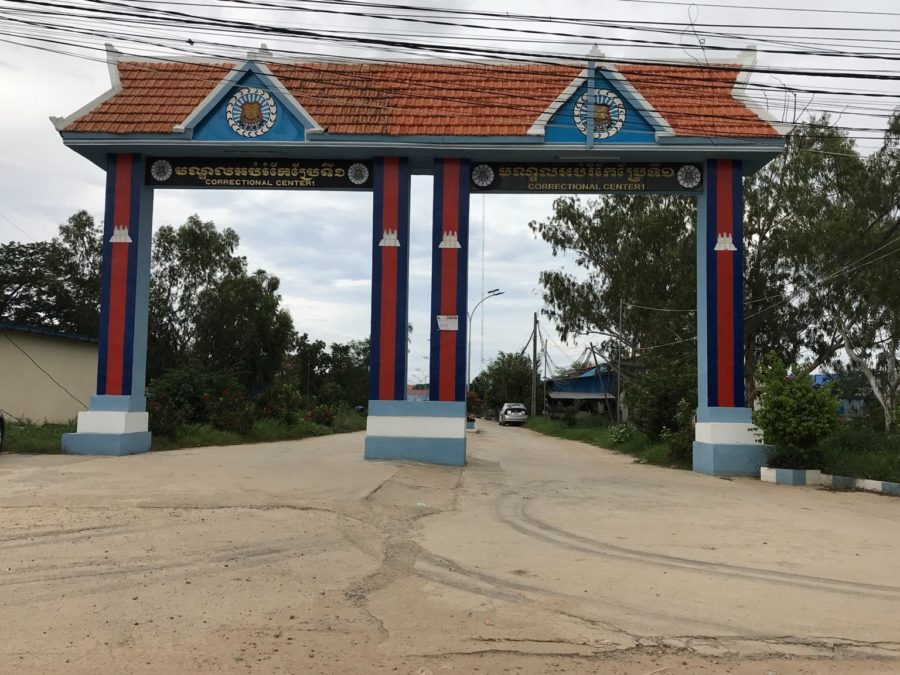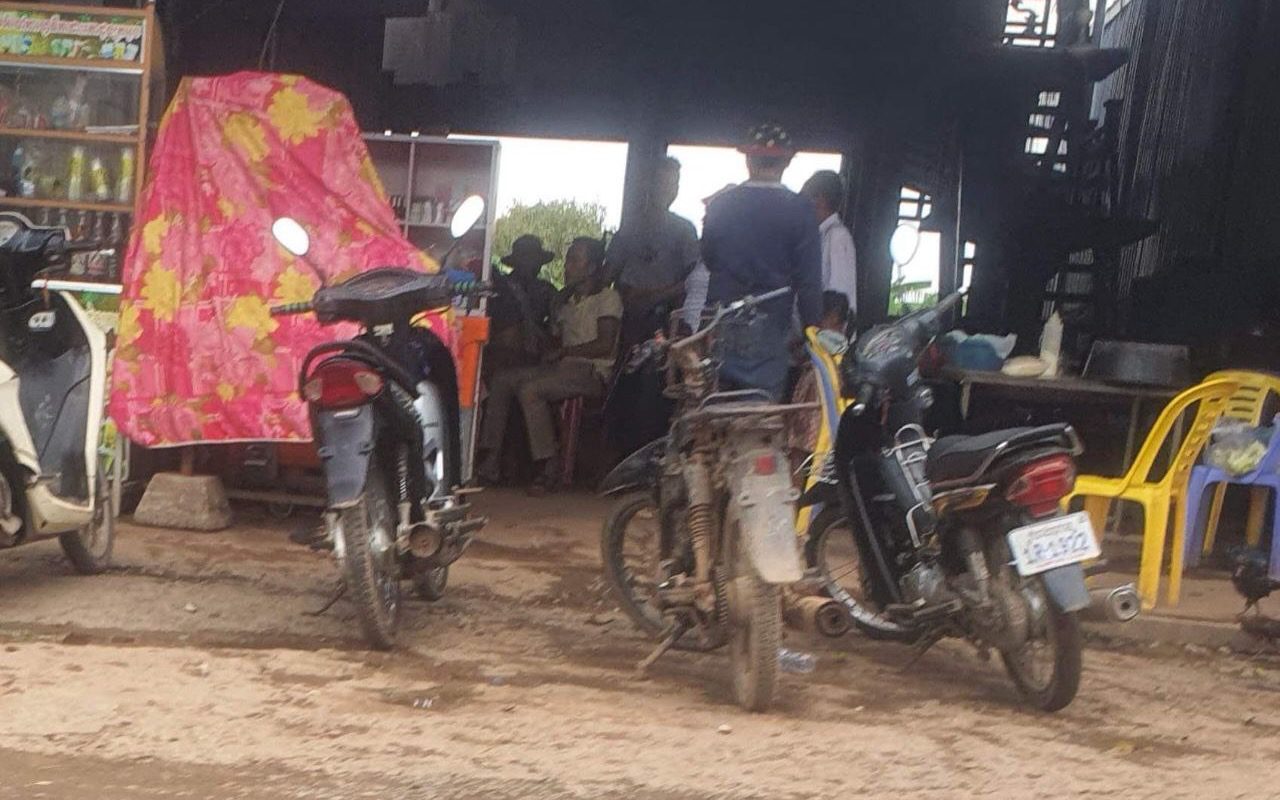Immigration officials treated foreign businesses softly as “investors” even when they blocked labor inspections — before a series of raids confirmed hundreds of human trafficking cases across the country, the Interior Ministry said.
At an event at Phnom Penh’s Sokha Hotel announcing a six-month campaign to clamp down on undocumented foreign workers, ministry officials spoke of the wave of human trafficking they discovered at scam compounds across the country following months of media reports.
Workers who escaped the compounds have spoken to tens of thousands of foreign nationals perpetrating global scams from Cambodian criminal operations rife with trafficking, violence and forced labor.
Interior Minister Sar Kheng on Friday reiterated some of the basic statistics of the authorities’ response since August: 707 complaints seeking rescue, 445 confirmed cases involving 1,045 foreign nationals; 120 arrested suspects.
Five companies had been shut down and four others were under investigation, Kheng said, without elaborating. The companies’ identities could not be confirmed with the Interior Ministry on Monday.
There were 229 unconfirmed cases where authorities could not find the locations of the complaints, Kheng added.
Immigration head Kirth Chantharith said inspectors had faced obstruction when visiting unspecified locations.
“There was noncooperation, mostly at sites of illegality. … They did not allow us to go in, and when authorities arrived, they shut the door and stopped us from getting inside,” Chantharith said.
Once the authorities’ raids on human-trafficking compounds began, inspectors were allowed into offices but then asked to wait while the businesses presented them with documents, rather than being allowed to freely inspect premises. Later, after further actions, inspectors were allowed to walk around, but only in certain areas that had legal workers.
“Other areas, they wouldn’t allow us to go in. They asked us to check only people who were legitimate.”
Still, the department had never punished any businesses for blocking inspections, he said. The Immigration Law allows jail sentences of one to three months for repeated infractions.
“For this point, I would like to inform you that we have never implemented this hot point, because we took a soft approach, understanding that the employers were investors,” Chantharith said. “If we implement this article, there will be an impact and it could reach the stage of extradition, so in the past we were soft.”
“If we were to receive the principle from the leaders to implement this hot point, all employers and owners who do not implement this law, they will face many consequences.”
Amid this background of human trafficking, the officials on Friday focused on the lack of work permits among foreign workers.
Chantharith said that before the raids began on foreign-worker compounds, 90,000 foreign workers had work permits. Since then, officials had received applications for 180,000, he said. He added that in 2022, authorities had inspected 4,085 businesses for permits, checking on about 40,000 workers.
Interior Minister Kheng meanwhile raised the example of a Bavet city casino — an area with reports of rampant trafficking — by saying that 3,800 foreign nationals had been found in a raid, but only 470 had valid work permits.
The head of foreign labor inspection Nov Leakhena outlined the Interior Ministry’s new six-month campaign against undocumented workers, saying the first three months would be spent asking businesses to report all their foreign employees. The following three months would see officers joined by court prosecutors to check on the enterprises and institutions, he said.
The campaign would support the efforts against human trafficking, labor trafficking, prostitution, illegal gambling, online fraud, drug production, money laundering and other crimes, Leakhena said.
“In this, there is no impact or disturbance for foreigner circles who are staying and working legally in Cambodia,” he said.
Immigration department head Chanharith declined to comment on Monday, while department spokesman Keo Vanthan and Interior Ministry spokesman Khieu Sopheak could not be reached.


